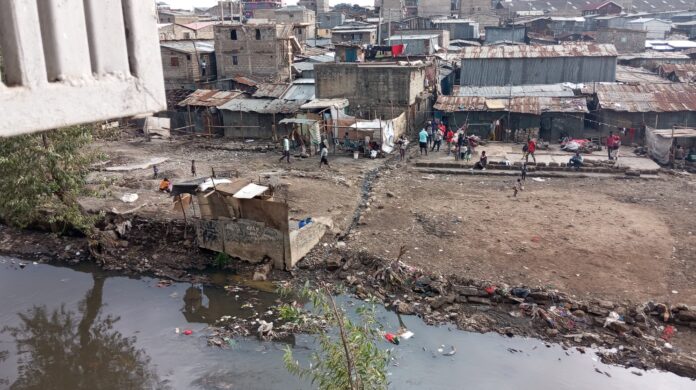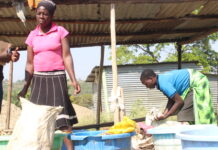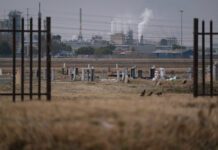By Lenah Bosibori
Nairobi, Kenya: Rains are often a sign of ‘blessings’ especially in the African setting. Its symbol mobilizes ice to plenty, a bumper harvest, and plenty for pasture. However, this year’s long rains in April did not bring fortune and good tidings for Cecilia Wanyoike and thousands of residents of Mukuru Kayaba in one of Nairobi’s informal settlements. The onset of the heavy downpour abruptly rendered her homeless. How did this happen?
Wanyoike’s semi-permanent house was erected on the banks of Ngong River and when disaster struck, the government issued orders to demolish illegal structures along the river that had broken its banks.
“I was among the people whose houses were demolished after the floods to pave the way for the 30-meter distance from the Ngong River, I remember the landlord ambushing me in the dead of night to leave because he wanted to salvage his iron sheets and doors, and the windows before they could be stolen,” she says.
With the little money she had, Wanyoike rented a small house nearby but a few days later, it got flooded. She says floods swept away pit latrines exposing them to waterborne diseases and insecurity whenever they went to nearby compounds at night to relieve themselves.
“Many months after the disaster, many residents have been left without toilets while some serve up to 200 residents,” says Wanyoike.
“Due to the long queues, some have unfortunately opted to use polythene bags while others use basins in their houses,” explains Wanyoike. “Due to a large number of people using the toilets, my two girls ended up getting infections, but they were treated and now they are fine. I also know women around here who have been affected because of the unhygienic conditions of these toilets.”
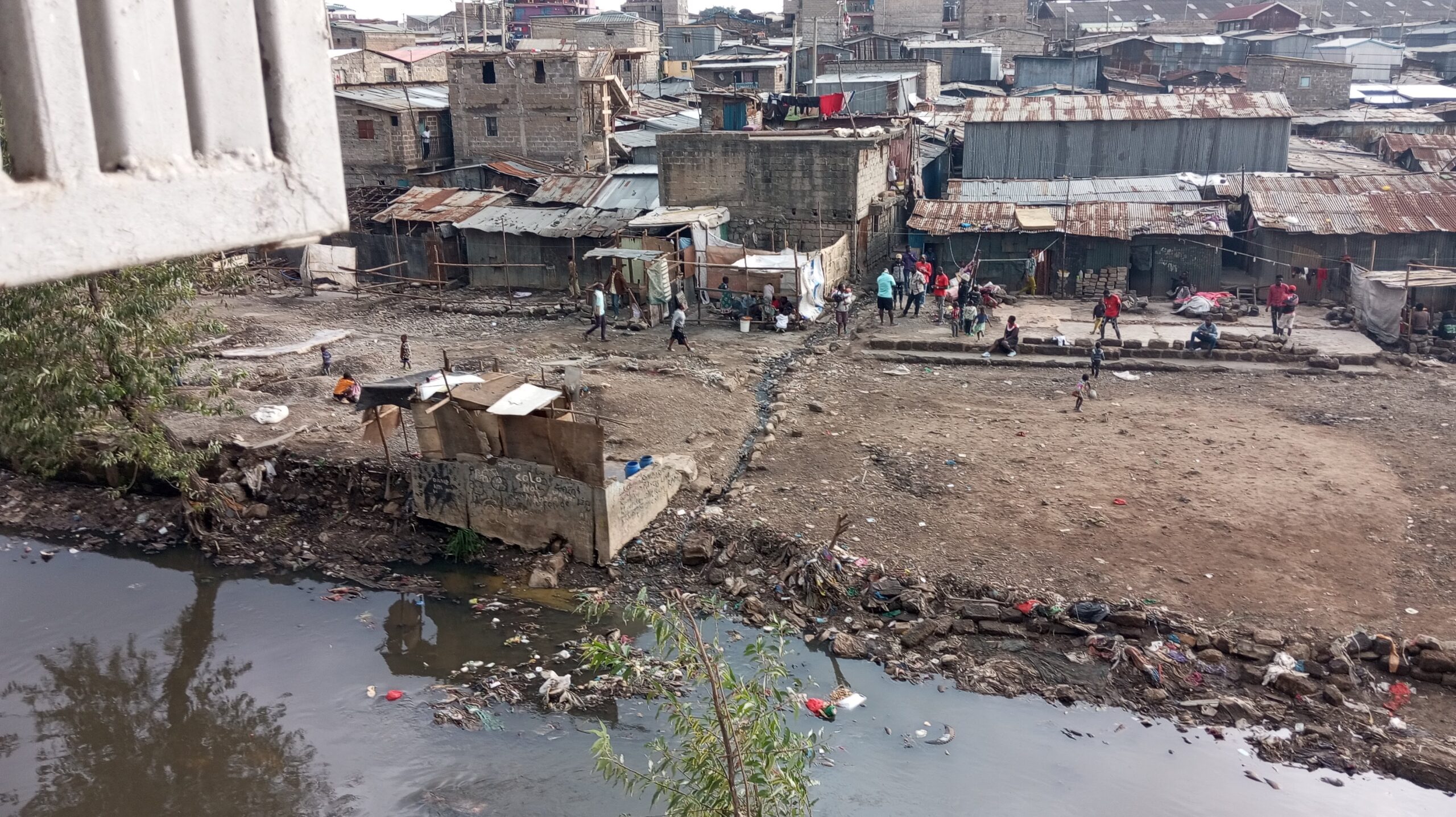
According to the 2024 March-April-May (MAM) rain floods Update Report by the Kenya Red Cross, the floods left 294 people dead, affecting 101,132 households and displacing 15,109 with 162 people reported missing across the country. Kenya Red Cross Report.
In Nairobi, thousands of people in informal settlements were left homeless. In the midst of the heavy rainfall that was being experienced, the government started evicting people who resided along the Ngong River with a promise of compensating them with Sh 10,000 to facilitate alternative livelihood.
This was more devastating to residents who had found a temporary settlement. The majority of the affected never got the cash transfer according to the locals who I spoke to.
Christine Maingi is another flood victim from Kisii Village, an informal settlement within Mukuru Kayaba.
“I ended up using polythene bags as the situation got worse, even now the situation is still bad because we still share the toilets among 10 households and no one offers to clean them leading to a surge in urinary tract infection (UTI),” says Maingi.
According to the residents, the floods did not leave them homeless but also with no access to toilets as many of them were swept away by the floods and the remaining few could not accommodate everyone. “I am forced to relieve myself in a basin and dispose off the waste in the river at night,” she adds. .
Maingi shares that the situation led to lack of privacy in her house because she lives with her two teenage boys. “Sometimes it was difficult to even stay the whole night with waste in the small cubed house,” adds Maingi.
She says a number of school girls are increasingly staying home due to infections, she adds that many women have also complained of various infections that have led them to incur the burden of getting enough finances to treat them.
Community Health Promoter interventions
Beatrice Omosa is a community health promoter (CHP) in Mukuru Kayaba, she says that she has referred at least 10 women for further medication due to infections contracted from the unhygienic toilets.
“Since the demolition started in May, most of the households used the sewer line as their toilets. Currently, we have a very big challenge with the toilets as many were swept away and others demolished to pave the way for the 30-meter distance from the Ngong river,” adds Omosa.
“As a CHP in the area, sometimes I visit households to see if there is any sick person and some households fear to talk to me because they still hide the waste in the house, maybe they delayed throwing it away,” shares Omosa
Omosa further adds that the demolition has greatly affected their health and that of their children as well as led to insecurity in the area. “Some landlords have opted to use sacks as alternatives for toilets with pipes directing the waste to the river, ,” explains Omosa.
Dr. Martin Wafula, Chief Executive Officer of Mama Lucy Hospital, highlights that in recent months, they have been attending to a rising number of female patients from informal settlements who present UTI infections due to poor sanitation.
“We record a total of 3,000 patients at Mama Lucy Hospital, many of these patients come from informal settlements within Nairobi, when we analyzed the data, we found out that many of them have similar challenges as a result of poor sanitation,” says Dr Wafula.
The hospital has also seen an increase in respiratory cancers and premature births, some of them being linked to poor sanitation in the densely populated informal settlements.
“On average, we deliver around 70 mothers a day, and at least 20 are premature births. We’ve observed that mothers exposed to poor sanitation and poor air quality are more likely to deliver early,” he adds.
Ndambuki Kimeu is the Assistant County Commissioner South B and he says they have put measures to address the shortage of the vital facilities to provide a clean and safe environment.
“We have already cleared the big dump site around Crescent in Mukuru Kayaba, which was a huge problem blocking the waste from upstream,” said Kimeu.
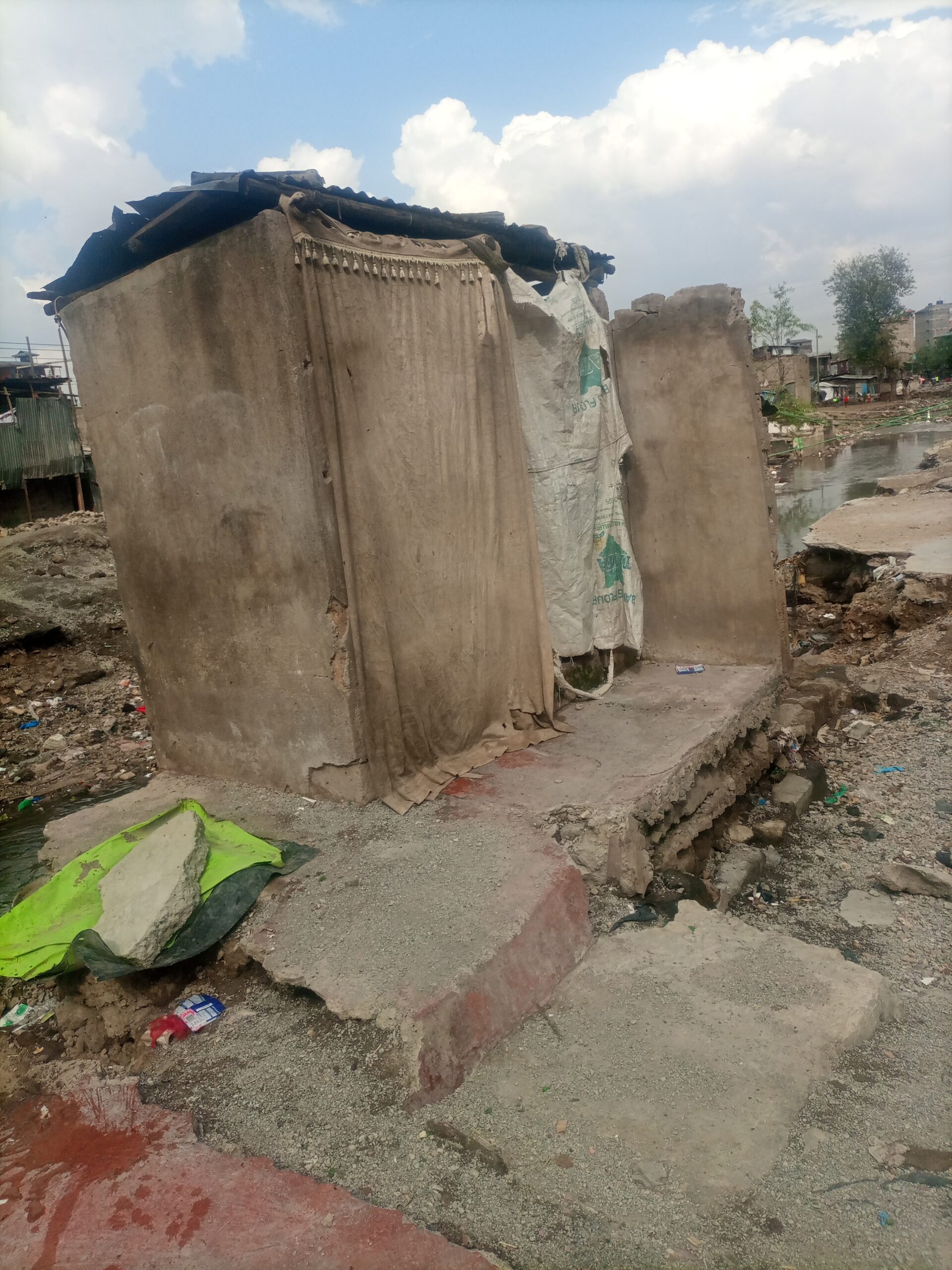
Another initiative is the recruitment of 500 youths from around the area to the ClimateWorX Mtaani Initiative previously referred to as ‘Kazi Mtaani, that by the time the story was being published, the youths were working and cleaning the river.
“This will help in the restoration of the river and water management, we have already identified five locations that will be used as collection centers where residents will be required to take their waste,” adds Kimeu.
On the issue of sanitation, the ACC adds that they work closely with Water, Sanitation, and Hygiene (WASH) projects conduct assessments within the informal settlements and if there is any pipe that drains into the river it is reported and the tenant is notified to provide better hygiene.
“We will liaise with Nairobi Water and Sewage Company to see how the particular pipes can be connected to the main sewer line,” he adds.
Another initiative according to Kimeu is the use of Fresh Life toilets that don’t need drainage. “We have a few along the riparian land but still due to the huge number of people in the area, the demand is still high, the last initiative is enforcement, any landlord that drains waste to the river will be arrested and presented to court,” adds Kimeu.
Fresh Life toilets are an innovation developed by Sanergy. They are waterless and container-based sanitation facilities ideal for Mukuru’s high-density setting. They have improved the hygiene crisis in the area because they allow waste collection and off-site processing.
However, despite the low-cost toilets improving hygiene and reducing health risks in the area, the sanitation challenge still persists due to the poverty and the small fee charged to meet the maintenance service.
Both Wanyoike and Christine have high hopes that one day, Mukuru informal settlement will be a case study and the sanitation crisis will be a thing of the past.

